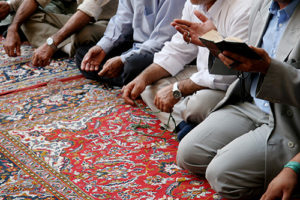Mathias Rohe talked with FOCUS-Online about the conflict between Sunnis and Shiites
In an article by FOCUS-Online from January 7 the legal scholar, and Islamic scientist at the FAU, Mathias Rohe, as well as founding rector of the EZIRE, elaborates on the conflict between Sunnis and Shiites and points out opportunities how to counter this difficulty in Germany.
“On the levels of the believers there are indeed strong resentments, especially from Sunnis against Shiites” and in some countries like Pakistan or Bahrain sometimes brutal encroachments were occurring against Shiites. “The development in the Middle East I find depressing”, Rohe says. Back in the 1960s there had been overtures between the two groups, but today Rohe sees a “huge setback” in comparison to back then: Among the Sunnis there had been deliberations to approve the Shia as the 5th big law school of Islam. Today no one was talking about it anymore. Responsible for the setback was first and foremost the rise of Saudi-Arabia with its extreme anti-Shia state religion, the Wahhabism.
